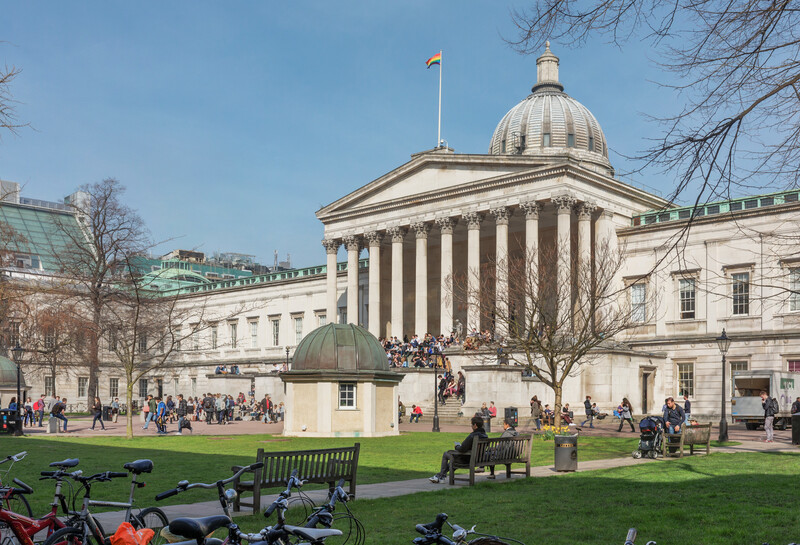Academics at UK university reject IHRA anti-Semitism definition
Activism and BDS Beat 19 February 2021

University College London academics say IHRA definition of anti-Semitism “not fit for purpose.” (Wikipedia)
Academics at a major British university last week voted to reverse their institution’s adoption of the misleading anti-Semitism definition promoted by Israel and its lobby.
A report by University College London’s academic board states that the International Holocaust Remembrance Alliance’s “working definition” of anti-Semitism “is not fit for purpose within a university setting and has no legal basis for enforcement.”
The board voted to endorse the report last week. It will now be up to university management to decide whether the vote will be implemented.
The university’s branch of the University and College Union is campaigning against the definition.
The report was more than a year in the making.
The Palestine Solidarity Campaign (PSC) said on Friday that the report was a “measured and powerful analysis” which had delivered “a devastating blow to Secretary of State for Education Gavin Williamson’s attempts to pressure universities into adopting the IHRA definition.”
In October, Williamson threatened to punish universities that refused to adopt the IHRA definition by Christmas.
At the time, fewer than 22 percent of higher education establishments had adopted it. Since then more institutions have buckled under pressure.
But PSC director Ben Jamal told The Electronic Intifada on Thursday that by his organization’s count it was still only a small minority of British universities.
Williamson has yet to follow through on his threat to “impose new regulatory conditions” on the refusers – cut their funding.
Censoring opposition to Zionism
The IHRA definition has been widely opposed by free speech defenders, Palestinians, Jewish activists, Palestine solidarity, Black and Asian groups.
They say it conflates a wide range of legitimate criticisms of Israel with anti-Jewish prejudice.
Seven of the 11 “examples” of anti-Semitism attached to the IHRA definition relate to criticism of Israel and its racist state ideology Zionism.
In their report the academic board said the IHRA definition “disproportionately draws debates over Israel and Palestine into conversations around anti-Semitism, potentially conflating anti-Zionism with anti-Semitism.”
One of the examples states that “claiming that the existence of a state of Israel is a racist endeavor” may be anti-Semitic. But by this definition, leading Israeli human rights group B’Tselem could easily be deemed “anti-Semitic” for its recent recognition that Israel is an “apartheid” regime which is “designed to cement the supremacy of one group — Jews — over another — Palestinians.”
The report states that this particular example “raises free-speech concerns because it may prevent speakers, academics or students from speaking out or voicing concerns about Zionism as an ideology.”
Backlash
The stance by academics at University College London is one of several recent signs of a backlash against the IHRA definition.
Leading human rights lawyer Geoffrey Bindman said in the PSC statement that “concerns about the coercive attempts to force public bodies to adopt the IHRA definition are clearly shared by lawyers and academics alike.”
“The government must cease its pressure on institutions to curtail debate and restrict freedom of expression,” Bindman urged.
Last month the new chair of the UK’s anti-racism watchdog also said she opposes the IHRA definition.
Kishwer Falkner of the Equality and Human Rights Commission said in Parliament that “I do not support the call for an IHRA definition: It is extremely poorly worded and probably unactionable in law.”
Falkner added that the definition “directly conflicts with the duty on universities to protect free speech.”
She is a member of the House of Lords, the UK’s unelected upper chamber.
Also in January a long list of British academics with Israeli citizenship wrote an open letter to Williamson opposing the definition.
The academics say it has “a chilling effect on university staff and students legitimately wishing to criticize Israel’s oppression of Palestinians or to study the Israeli-Palestinian conflict.”
The letter is signed by Moshé Machover, retired professor at King’s College London, Forensic Architecture founder Eyal Weizman, historians Ilan Pappe and Avi Shlaim and many others.
No comments:
Post a Comment